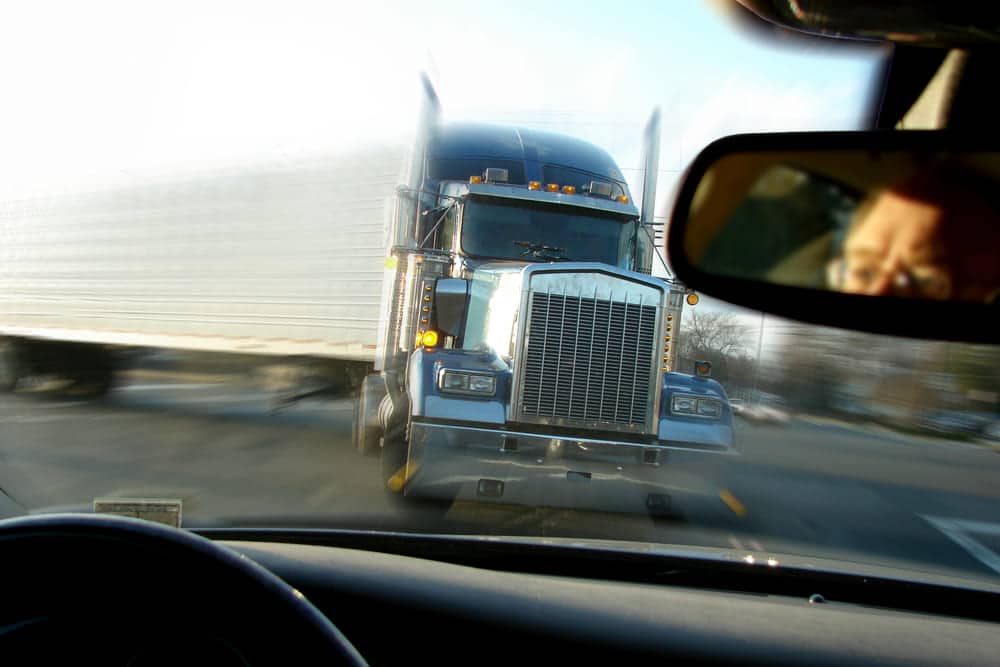Las reclamaciones por accidentes de camiones difieren de los casos estándar de colisión de vehículos de pasajeros en más aspectos de los que las víctimas pueden imaginar. Desde los tipos de lesiones que suelen causar hasta las restricciones federales impuestas y las partes potencialmente responsables, los casos de accidentes de vehículos comerciales pueden ser muy complejos. En esta guía, un abogado especializado en lesiones personales de Queens, Nueva York, de Elliot Ifraimoff & Associates, PC, analizará las leyes que regulan los accidentes entre camiones y automóviles para ayudarle a comprender mejor cómo funcionan las reclamaciones por lesiones causadas por vehículos de gran tamaño.
Gravedad de las lesiones: accidentes entre camiones y automóviles
Los accidentes de camiones y vehículos de pasajeros pueden causar lesiones graves, potencialmente mortales o incluso la muerte, dependiendo de la naturaleza del accidente. Dicho esto, las colisiones de vehículos comerciales suelen causar lesiones más catastróficas y más muertes debido al tamaño, el peso y el riesgo de vuelco de los camiones implicados.
Los vehículos comerciales pesan más de 10 000 libras (y a veces alcanzan las 80 000), mientras que los turismos suelen oscilar entre 2500 a 6000 libras. Esta diferencia de peso crea riesgos significativos para los conductores de vehículos de pasajeros. Los accidentes de camiones comerciales a menudo implican vuelcos de carga, colisiones en forma de navaja, impactos frontales y más.
Las víctimas de accidentes pueden sufrir lesiones que alteran su vida, tales como:
- Lesiones cerebrales traumáticas
- Daños en la médula espinal
- Quemaduras graves, cicatrices o desmembramiento.
- Lesiones por aplastamiento
- Y más
Según la Administración Federal de Seguridad de Autotransportes, 5904 camiones y autobuses se vieron involucrados en accidentes mortales en 2021, lo que supone un aumento del 18 % con respecto al año anterior. Los accidentes con heridos también aumentaron un 11 % en 2021, hasta alcanzar los 117 000. Datos más recientes del Consejo Nacional de Seguridad muestran que esta tendencia continúa, con un aumento del 43 % en los accidentes mortales con camiones grandes entre 2013 y 2023.
Dado que las reclamaciones por accidentes de camiones pueden implicar lesiones catastróficas, a las víctimas les suele resultar beneficioso contar con la ayuda de abogados con experiencia para gestionar el proceso de reclamación. Es posible que reclamen indemnizaciones por decenas o cientos de miles de dólares en concepto de gastos médicos, salarios perdidos y otros conceptos.
Las regulaciones federales sobre camiones comerciales
Los vehículos comerciales y de pasajeros están sujetos a las mismas leyes básicas de tránsito. Además, los camiones comerciales deben cumplir con diversas regulaciones federales que abarcan aspectos tales como:
- Sujeción de la carga
- Requisitos de registro
- Horario de servicio
- Normas de seguridad
- Requisitos de mantenimiento
- Pruebas de drogas y alcohol a conductores
- Y más
Cuando una empresa o un conductor no cumplen con estas normas, esto puede afectar a la responsabilidad civil, lo que hace que las reclamaciones por accidentes de camiones sean más complejas que las colisiones estándar de vehículos de pasajeros.
Partes potencialmente responsables en accidentes de camiones y automóviles
En una colisión de vehículos de pasajeros, las partes responsables pueden ser el conductor implicado, los fabricantes de vehículos, los proveedores de mantenimiento o los responsables del mantenimiento de las carreteras que hayan actuado con negligencia. La responsabilidad en los accidentes de camiones comerciales puede ser mucho más compleja, ya que introduce nuevas variables en la ecuación. Las partes responsables pueden incluir no solo al conductor del camión, sino también a su empresa, al inspector del vehículo, al equipo que cargó la mercancía y a otros.
Veamos un ejemplo. En un caso de conducción bajo los efectos del alcohol con vehículos de pasajeros, normalmente se responsabilizaría al conductor ebrio por negligencia. Sin embargo, en las reclamaciones por accidentes de camiones comerciales, es posible que se responsabilice al empleador (o al menos parcialmente) por no realizar las pruebas de drogas y alcohol requeridas o por permitir que el conductor continúe conduciendo después de haber dado positivo en una prueba.
Complicaciones jurisdiccionales en varios estados en colisiones de camiones
Muchas empresas de transporte comercial transportan mercancías por todo Estados Unidos, lo que significa que es posible que no tengan su sede en Nueva York, donde se produce el accidente. Tramitar una reclamación por accidente de camión con una empresa de otro estado añade numerosas complicaciones jurisdiccionales. Esto puede afectar al lugar donde se presenta la reclamación, a la normativa estatal que se aplica y a las normas de seguros aplicables.
¿El proceso de investigación es diferente después de un accidente de camión?
Dado que las reclamaciones por accidentes de camiones suelen implicar pérdidas económicas importantes, múltiples partes responsables y diversos organismos reguladores, el proceso de investigación puede ser más exhaustivo que en el caso de las colisiones de vehículos de pasajeros. Las investigaciones pueden incluir:
- Revisión de los datos de la caja negra del camión o del dispositivo de registro electrónico.
- Contratación de reconstructores de accidentes para realizar análisis profesionales.
- Participación de organismos como el Departamento de Transporte o la FMCSA.
Aunque la investigación sigue los mismos pasos que cualquier otra reclamación por colisión de vehículos, el proceso puede prolongarse considerablemente debido a la participación de diversos organismos reguladores y a las pérdidas económicas potencialmente elevadas.
¿Qué ofrece un abogado especializado en accidentes de camiones?
Los abogados especializados en accidentes de camiones ofrecen experiencia y conocimientos sobre la normativa de transporte por carretera, las pólizas de seguros comerciales, los problemas con jurisdicciones multiestatales y la asignación de responsabilidades en este tipo de colisiones complejas. Mientras que los abogados especializados en accidentes de tráfico solo pueden trabajar en casos relacionados con vehículos de pasajeros, los abogados especializados en accidentes de camiones entienden todo, desde los requisitos de sujeción de la carga en los vehículos comerciales hasta las limitaciones de las horas de servicio. Tienen acceso a contactos en el sector, lo que les permite contar con testigos profesionales, como reconstructores de accidentes de camiones, para desarrollar los casos en consecuencia.
Un abogado puede ayudarle a identificar la posible responsabilidad en su caso, recopilar pruebas y presentar su reclamación al seguro. Puede negociar con las aseguradoras en su nombre, contratar testigos profesionales o ayudarle a determinar si debe llevar el caso a un nivel superior presentando una demanda contra la parte negligente.
Póngase en contacto hoy mismo con un abogado especializado en accidentes de camiones en Queens, Nueva York.
Confiamos en que la guía anterior le haya ayudado a comprender mejor en qué se diferencian las reclamaciones por accidentes de camiones de los casos de accidentes de vehículos de pasajeros. Si necesita ayuda para determinar la responsabilidad en un accidente de camión, llame a Elliot Ifraimoff & Associates, PC, al (718) 205-1010 para hablar con un abogado con experiencia sobre su caso.
Preguntas frecuentes
Entendemos que aún puede tener preguntas sobre las reclamaciones por accidentes de camiones. A continuación, encontrará respuestas a algunas preguntas frecuentes:
¿Cuánto tiempo dura el proceso legal de un accidente de camión?
Las reclamaciones por accidentes de camiones pueden tardar entre varios meses y más de un año en resolverse, dependiendo de la complejidad del caso, las pruebas disponibles, las partes responsables y otros factores diversos.
¿En qué se diferencian las reclamaciones por accidentes de camiones de los casos de accidentes de automóviles?
Los accidentes de camiones comerciales difieren de las colisiones de vehículos de pasajeros, ya que conllevan un alto riesgo de lesiones catastróficas, y las regulaciones federales sobre vehículos comerciales añaden complejidad a la responsabilidad civil. Estos accidentes también pueden involucrar a empresas de otros estados y, a menudo, requieren procesos de investigación más detallados.
¿Quién es responsable de un accidente de camión?
Las partes responsables en los accidentes de camiones pueden incluir cualquier conductor involucrado, el propietario o la empresa del vehículo comercial, los fabricantes de vehículos, los proveedores de mantenimiento de camiones y otros.

